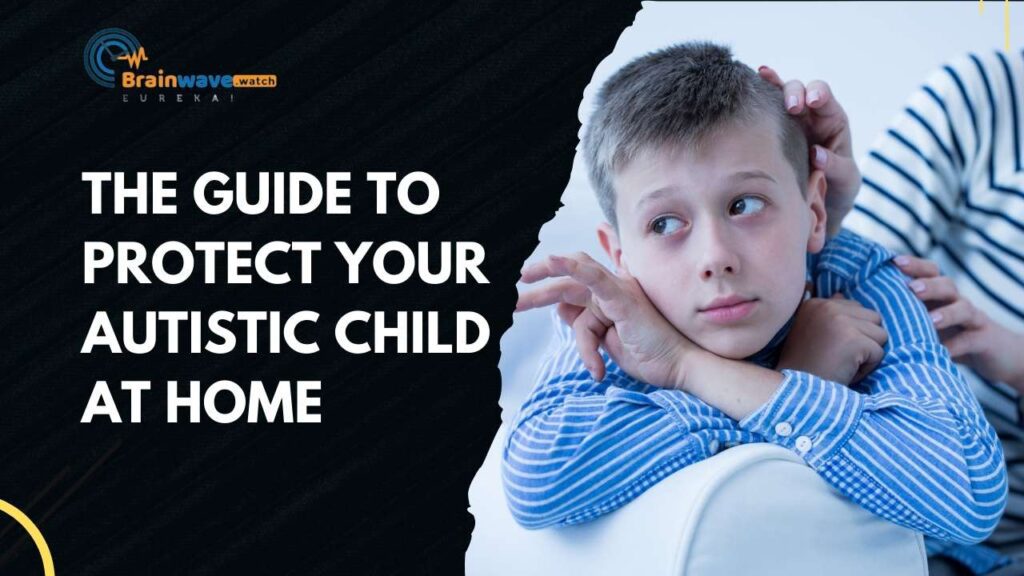One of the most important things to consider is whether the person with autism has the financial resources and support network to provide for a child. Raising a child is expensive, and it’s important to have a plan in place for things like childcare, education, and medical expenses. It’s also important to have a support network of family and friends who can help out when needed.
Another consideration is whether the person with autism has the emotional capacity to provide for a child. Raising a child can be emotionally taxing, and it’s important to have the ability to handle stress and provide emotional support to a child. Many people with autism have unique strengths that can make them excellent parents, such as attention to detail, a strong sense of routine, and a deep understanding of their child’s needs.
When considering adoption, it’s important to be honest about your strengths and limitations. This can help you find the right match for your family and ensure that you can provide the best possible care for a child. It’s also important to work with a qualified adoption agency that has experience working with families with special needs.
Eligibility Criteria for Prospective Adoptive Parents with Autism
Individuals with autism spectrum disorder (ASD) may face unique challenges when it comes to adopting a child. However, having autism does not automatically disqualify someone from becoming an adoptive parent. Many people with autism have successfully adopted children and provided loving homes for them.
Assessment Process
Prospective adoptive parents with autism will typically need to undergo a thorough assessment process to determine their eligibility. This process may include interviews, psychological evaluations, and home studies. The purpose of these assessments is to ensure that the individual can provide a safe and stable home environment for a child.
It is important to note that the assessment process may vary depending on the state or country in which the individual is seeking to adopt. Prospective adoptive parents with autism should research the specific requirements in their area and consult with adoption professionals to ensure that they are prepared for the assessment process.
Support and Accommodations
Individuals with autism may require support and accommodations to successfully navigate the adoption process and provide a stable home for a child. This may include working with adoption professionals who have experience working with individuals with autism, as well as accessing support services such as therapy or counseling.
Prospective adoptive parents with autism should also consider their own needs and limitations when preparing for adoption. For example, some individuals with autism may struggle with sensory processing issues or social interactions and may need to make accommodations to ensure that they can provide a safe and supportive home for a child.
Legal Considerations and Rights
When it comes to adoption, individuals with autism have the same legal rights as anyone else. The Americans with Disabilities Act (ADA) prohibits discrimination based on disability, including autism, in all areas of public life, including adoption. This means that individuals with autism cannot be excluded from the adoption process solely because of their diagnosis.
However, it is important to note that adoption agencies and courts may consider an individual’s ability to provide a stable and nurturing home environment for a child. This includes factors such as the individual’s financial stability, living situation, and support system. While having autism does not automatically disqualify someone from adopting, it may be a factor that is taken into consideration.
It is also important for individuals with autism who are considering adoption to be aware of their legal rights throughout the process. This includes the right to reasonable accommodations, such as assistance with communication or sensory needs, during home studies and other adoption-related activities. Individuals with autism also have the right to file a complaint if they believe their rights have been violated during the adoption process.
Adoption Agencies and Autism-Friendly Services
Adopting a child with autism can be a rewarding experience for both the child and the adoptive parents. However, finding an adoption agency that offers autism-friendly services can be challenging. Prospective adoptive parents with autism need to do their research and find an agency that understands their unique needs.
One way to find an autism-friendly adoption agency is to look for agencies that have experience with special needs adoptions. These agencies may have staff members who are trained to work with children with autism and can provide the necessary support for the adoptive parents.
Another option is to look for agencies that offer pre-adoption training and support specifically for parents with autism. This can include training on how to communicate with children with autism, how to manage challenging behaviors, and how to create a sensory-friendly home environment.
Some adoption agencies also offer post-adoption support for families with children with autism. This can include access to support groups, therapy services, and respite care. Adoptive parents need to have access to these resources to ensure the best possible outcome for both the child and the family.
Some adoption agencies may offer specific services for children with autism, such as matching them with families that have experience with autism or providing access to specialized therapies and services. Adoptive parents need to ask about these services and determine if they are a good fit for their family.
Personal Stories and Community Support
While adopting a child can be a fulfilling experience for anyone, it can be particularly meaningful for someone on the autism spectrum. Many people with autism have a strong desire to help others and can offer unique perspectives and insights into parenting and child development.
There are numerous personal stories of individuals with autism who have successfully adopted children. For example, one woman on the autism spectrum shared her experience of adopting a child with her husband. She explained that her autism helped her to be a better parent, as she was able to think about her child’s needs logically and systematically.
There are also many resources available to support individuals with autism who are interested in adopting. For example, the Autism Society offers a guide to adoption for individuals with autism, which includes information on the adoption process, legal considerations, and tips for preparing for parenthood.
There are also many online communities and support groups for individuals with autism who are interested in adopting. These groups can offer advice, encouragement, and a sense of community to individuals who may feel isolated or unsure about their ability to parent.
Factors That May Disqualify Adoption
Adoption agencies thoroughly screen prospective parents to ensure children are placed in safe, stable homes. While having autism does not automatically disqualify you from adopting, some factors may lead an agency to deny an adoption application:
-
Criminal History: Any history of violent crimes or sexual offenses will likely prevent adoption approval. Minor offenses like traffic violations are less concerning. Disclose any criminal record and emphasize rehabilitation efforts.
-
History of Abuse: Adoption agencies will investigate any past allegations of child abuse, domestic violence, or drug/alcohol abuse. Recent issues or lack of treatment will raise red flags. Demonstrate you addressed these problems and no longer pose a risk.
-
Financial Stability: Adoption is expensive, so agencies want proof of steady income and financial responsibility. While affluence is not required, you must show you can provide for a child’s needs. Insufficient income or excessive debt may be disqualifying.
-
Health Issues: Certain disabilities or medical conditions could be disqualifying if they severely limit one’s ability to care for a child. However, most agencies are open to considering accommodation plans. Be honest about your needs and abilities.
The key is being transparent about your history and demonstrating you have addressed past problems. While autism alone won’t prevent adoption, other complicating factors might unless you show how you have overcome them. Thorough preparation and a well-organized application are essential.







